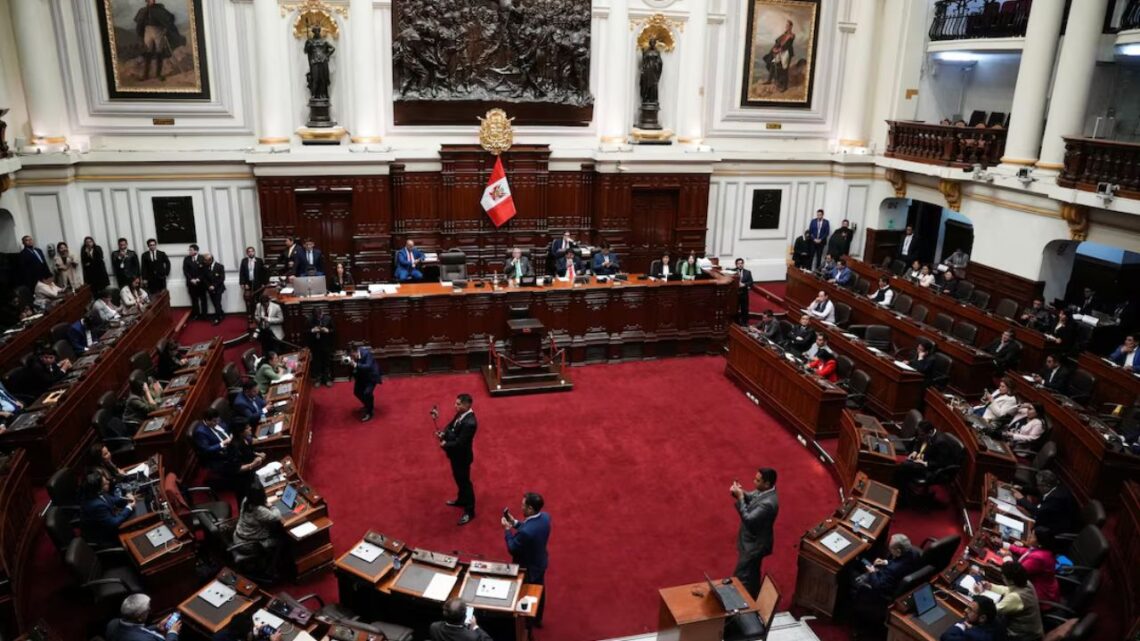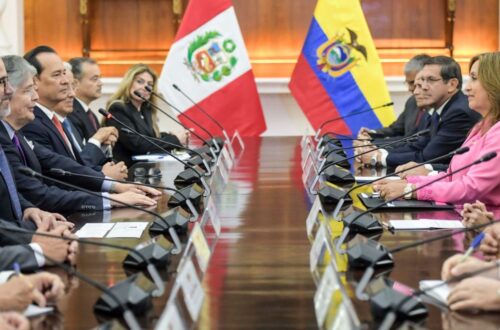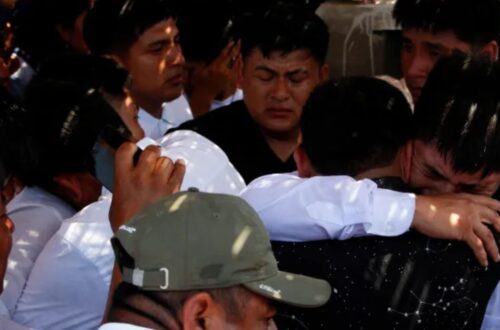Late on October 9–10, 2025 (Lima time), Peru’s Congress voted overwhelmingly to admit multiple impeachment motions against President Dina Boluarte, formally enabling a debate and potential removal process.
This development follows a shocking mass shooting at a Lima concert, which ignited widespread outrage over Peru’s longstanding crime and extortion crisis.
What Happened- From Motion to Debate
During an intense late-night session, lawmakers decided to accept (admit) four separate impeachment requests, each clearing the minimum threshold of 56 votes required to move forward—thereby authorizing formal debate over Boluarte’s presidency.
In tandem, Congress ordered her to appear before the body to present a defense, scheduled around midnight Lima time.
The next phase will allow debate on the charges, after which legislators can vote on removal—with 87 votes in the 130-member chamber required for ouster.
Why Now? Crime, Public Fury, and Political Realignment
The tipping point was the concert shooting in Lima, which crystallized public perception that the government could not guarantee citizens’ security.
In the first eight months of 2025 alone, Peru recorded roughly 6,041 homicides—the highest number in recent years—and over 15,000 extortion complaints, representing a year-on-year increase of about 28 percent.
Previously, impeachment attempts against Boluarte had failed to gain traction, but the convergence of security collapse and public indignation shifted the balance.
In a rare show of consensus, multiple congressional factions—including the largest bloc, which had been more cautious in past initiatives—agreed to fast-track the process.
Parliamentary Math and Political Stakes
- Admittance threshold: 56 votes
- Removal threshold: 87 out of 130
- Accepted motions: 4 separate requests
- Crime statistics (Jan–mid-Aug 2025): ~6,041 homicides; >15,000 extortion cases (+28 % YoY)
- Political shift: Largest bloc now supports impeachment debate
- Timing gesture: Late-night plenary and accelerated schedule
By approving the motions, Congress signaled it will proceed aggressively. The key question is whether the momentum can carry it over the 87-vote mark needed to remove a sitting president.
What Now? The Road Ahead
- Boluarte’s appearance and defense. She must respond to accusations in the impeachment debate.
- Congressional debate. Legislators will examine charges, security failures, and her responses.
- Final vote. If 87 or more lawmakers vote in favor, Boluarte will be removed from office.
- Succession and stability. Should removal occur, Peru will need to manage leadership transfer amid ongoing unrest.
This impeachment cycle is distinguished by urgency and breadth of support—not typical in Peru’s recent political history.
Broader Context- A Presidency Under Siege
Since assuming the presidency in December 2022 after the removal of Pedro Castillo, Boluarte has navigated repeated attempts against her tenure, allegations of corruption, and recurring waves of protests and political fragmentation.
Yet none of these previous challenges saw such immediate cross-party momentum.
Here, the convergence of a security collapse and political will marks a shift: Congress is no longer holding back.
Boluarte now stands at a crossroads—either she persuades lawmakers of her competence and strategy, or she becomes the next leader in Peru’s cycle of abrupt transitions.
Key Facts at a Glance
| Item | Detail |
|---|---|
| Date of admission vote | Oct 9–10, 2025 (Lima time) |
| Action taken | Impeachment motions admitted for debate/trial |
| Votes needed to admit | 56 |
| Votes needed to remove | 87 of 130 |
| Number of motions admitted | 4 |
| Crime backdrop | ~6,041 homicides; >15,000 extortion complaints; +28 % YoY |
| Political shift | Largest block backs debate; fast tracking initiated |
| Next step | Boluarte to present defense and debate begins |
By approving impeachment debate, Peru’s Congress has escalated a political confrontation that now revolves around security, legitimacy, and public confidence.
The admission vote does not remove President Boluarte, but it institutionalizes the path toward her potential ouster.
Her fate now hinges on her defense, legislative alignments, and whether Congress will muster 87 votes.
Across a fraught political landscape, the coming days may determine whether Boluarte endures or becomes yet another casualty of Peru’s turbulent governance.









